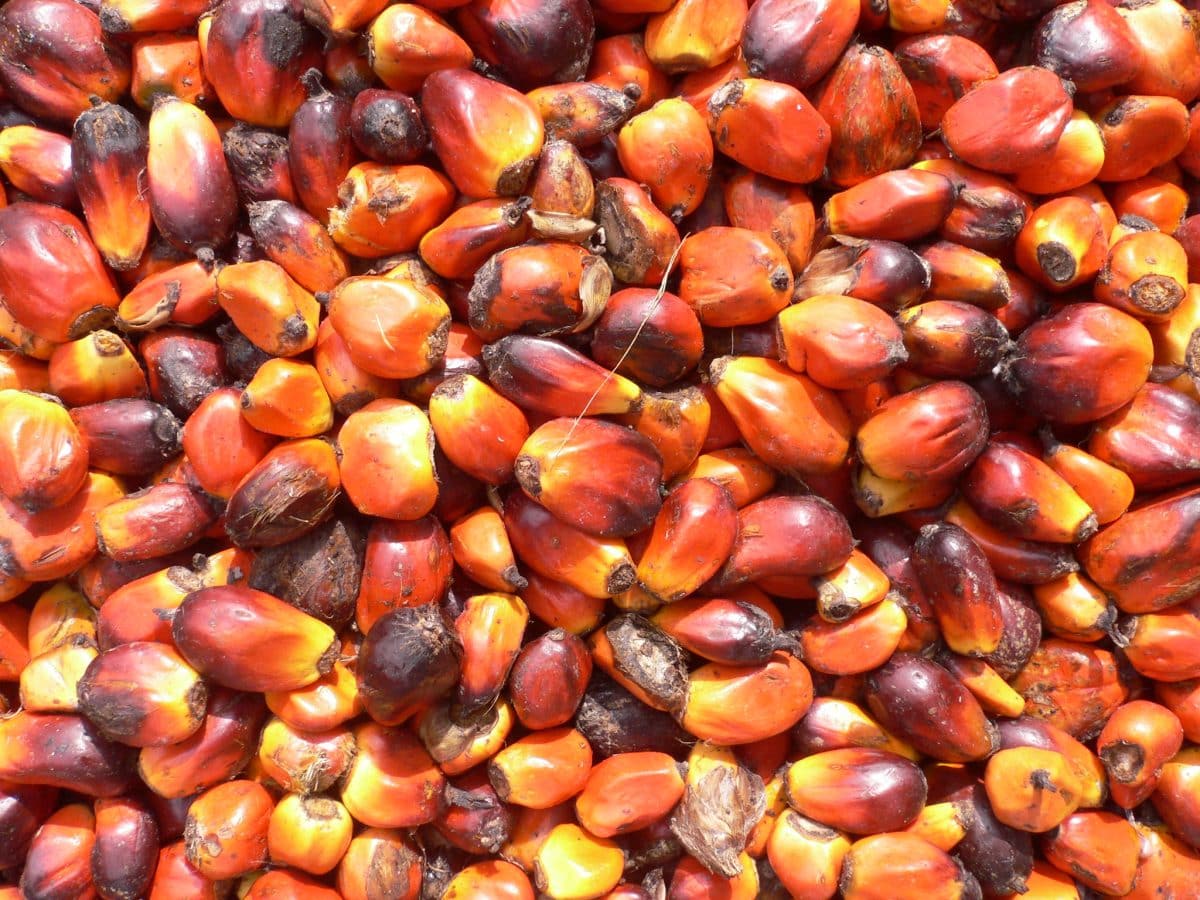How is palm oil made?
Palm oil is a type of edible vegetable oil that comes from the fruit of oil palm trees. Two types of oil can be produced; crude palm oil comes from squeezing the fleshy fruit, and palm kernel oil which comes from crushing the kernel, or the stone in the middle of the fruit. Palm oil is incredibly versatile and it is used in a variety of products including food products, detergents, cosmetics, and is also used as a biofuel.
Palm oil is a very efficient crop. This means that it produces more oil per land area than any other equivalent vegetable oil crop. Globally, palm oil supplies 35% of the world’s vegetable oil demand on just 10% of the land.
However, palm oil production is also linked to major environmental and social problems. Deforestation for palm oil plantations has led to significant losses in these richly biodiverse habitats. It’s also contributing to climate change. Furthermore, there are many social issues including exploitation of workers.
Several alternatives to palm oil are available, but each comes with its own set of challenges:
-
Sunflower oil: Sunflower oil is a good substitute for palm oil in cooking and baking. It is lower in saturated fats and can often be used in the same quantities as palm oil. However, it requires much more land to produce the same amount of oil as the oil palm.
-
Coconut oil: Like palm oil, coconut oil is semi-solid at room temperature and has a similar melting point, which makes it a potential alternative for many uses. But coconut palms are less productive per hectare, which means replacing palm oil entirely with coconut oil would require even more land.
-
Soybean oil: Soybean oil has many of the characteristics that make palm oil attractive for food manufacturers. It’s versatile and cheap to produce. However, soy cultivation is also a driver of deforestation, especially in South America.
-
Rapeseed oil: Rapeseed (canola) oil can be a good substitute for palm oil in many foods. However, like other alternatives, it requires more land to produce the same amount of oil.
-
Olive oil: Olive oil is generally recognized as a healthy oil for human consumption but it’s not suitable for all product types due to its strong flavor and it’s much more expensive than palm oil.
The best alternative may be to source sustainable palm oil. This is oil from plantations that have been certified by the Roundtable on Sustainable Palm Oil (RSPO), an organization that sets environmental and social standards for palm oil production. These standards ensure that certified plantations minimize their impact on the environment and local communities. However, the system is not perfect, and it’s often criticized for allowing deforestation and other harmful practices to continue.
There’s also ongoing research into using yeast and bacteria to produce palm oil alternatives. This synthetic biology approach could produce oils with the same characteristics as palm oil without the need for large-scale agriculture, but it’s still in the early stages.

